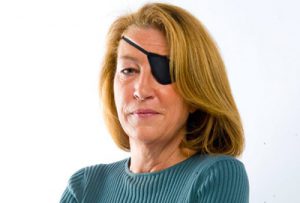Deprecated: stripslashes(): Passing null to parameter #1 ($string) of type string is deprecated in /homepages/8/d198549628/htdocs/upload/raw/wp-content/plugins/expand-maker/classes/ReadMoreIncludeManager.php on line 308
 “Covering a war means going to places torn by chaos, destruction, and death, and trying to bear witness. It means trying to find the truth in a sandstorm of propaganda when armies, tribes or terrorists clash…Journalists covering combat shoulder great responsibilities and face difficult choices. Sometimes they pay the ultimate price…
“Covering a war means going to places torn by chaos, destruction, and death, and trying to bear witness. It means trying to find the truth in a sandstorm of propaganda when armies, tribes or terrorists clash…Journalists covering combat shoulder great responsibilities and face difficult choices. Sometimes they pay the ultimate price…
Is it worth the cost in lives, heartbreak, loss? Can we really make a difference? I faced that question when I was injured. In fact, one paper ran a headline saying, has Marie Colvin gone too far this time? My answer then, and now, was that it is worth it.
Our mission is to speak the truth to power. We send home that first rough draft of history. We can and do make a difference in exposing the horrors of war and especially the atrocities that befall civilians…
The real difficulty is having enough faith in humanity to believe that enough people be they government, military or the man on the street, will care when your file reaches the printed page, the website or the TV screen…
We do have that faith because we believe we do make a difference.”
– Marie Colvin, Address given at a service for war wounded at St. Bride’s Church, London, 2010
This year’s winner is a unique woman, a courageous war correspondent, who dedicated her life to reporting from the frontline of almost every major conflict in recent history.
From the war in the Balkans to the armed conflict in Chechnya, to the wave of revolutions that ignited the Arab Spring – Marie Colvin was there, bearing witness and giving a voice to those caught up in the heart of the ‘sandstorm’. She exposed the horrors of war and made a difference.
We honour Marie Colvin for her courage, integrity and passion for truth. She lived a life of courage and truth-telling in the face of grave danger, just as Anna did, and paid for it with her life.
One of the most experienced and noted war correspondents of her generation Marie Colvin lost her life on 22 February 2012 while reporting from the besieged city of Homs, in Western Syria. She had defied the ban on foreign journalists imposed by the Syrian government and entered the country on the back of a motorcycle – ensuring the world would hear about the atrocities against civilians that continue there to this day; hoping that the world would care.
In the face of grave danger, she stayed in Homs where some of the most brutal violence occurred. Marie, like the 2011 Anna Politkovskaya Award winner Razan Zaitouneh (from Syria) before her, became a voice for the Syrian people, who continue their struggle for freedom and human rights.
In her last broadcasts, on the evening of 21 February 2012, Marie reported live on the BBC, Channel 4, CNN and ITN News, recounting the “merciless” horror that was unfolding in Homs. Over footage of an injured child Marie reported: “That little baby is just one of two children who died today, one of the children being injured everyday. That baby probably will move more people to think ‘what is going on and why is no one stopping this murder in Homs that is happening everyday?’”
Marie’s final reports also disproved the Syrian authorities’ claim that they were not targeting civilians. She ended her dispatch to CNN with the words
“It’s a complete and utter lie that they are only going after terrorists… the Syrian army is simply shelling a city of cold, starving civilians”.
The following day, she was killed, while escaping from a makeshift media centre in a civilian building, which was being shelled by the Syrian government army.
We celebrate Marie Colvin, who like Anna, carried on working, in the face of great personal danger, seeing it to be her professional duty to bear witness and give a voice to those trapped by the violence of war and conflict.
On Marie Colvin receiving the 2012 Anna Politkovskaya Award, Lord Frank Judd, a member of the 2012 Nominations Committee, said:
“A difficult choice from a particularly challenging list of nominations! Marie Colvin represented journalism at its most courageous and committed best – critically important for democracy and freedom.”
Marie Colvin’s career as a journalist spanned over 30 years. After graduating from Yale, Marie started her career as a police reporter for United Press International (UPI), she moved to Paris to work for UPI there, before joining the British newspaper The Sunday Times in 1985 where she remained until her death. Originally the Sunday Time’s Middle East correspondent, and later Foreign Correspondent, Marie Colvin covered conflicts in Sierra Leone, Zimbabwe, Chechnya, Kosovo, Sri Lanka and East Timor. It was during her time in East Timor that she was credited with saving the lives of 1,500 women and children after she refused to leave them in a compound besieged by Indonesian-backed forces.
Marie lost the use of her left eye after getting caught in a grenade blast, while reporting on the Sri Lankan civil war in 2001. In early 2011, she covered the Arab Spring’s uprisings across Tunisia, Egypt and Libya and was the first journalist offered an interview access to Muammar Gaddafi after conflict broke out in Libya.


